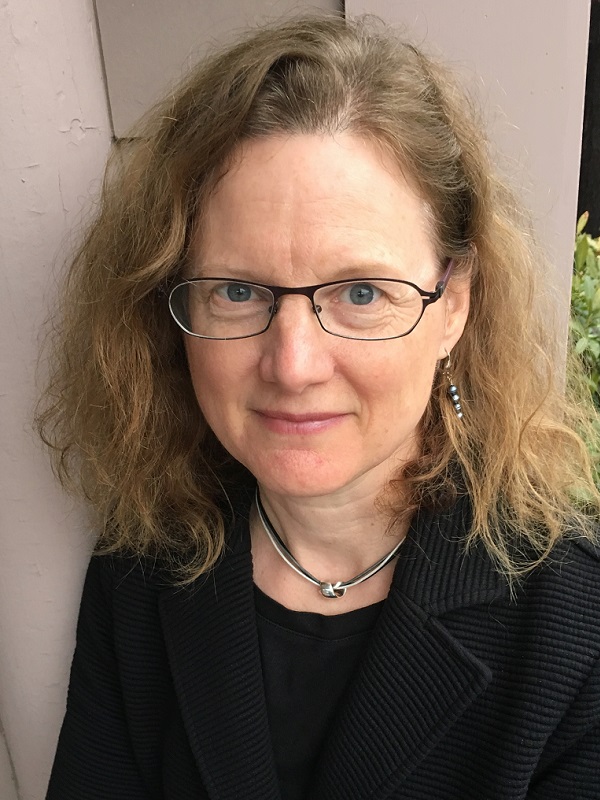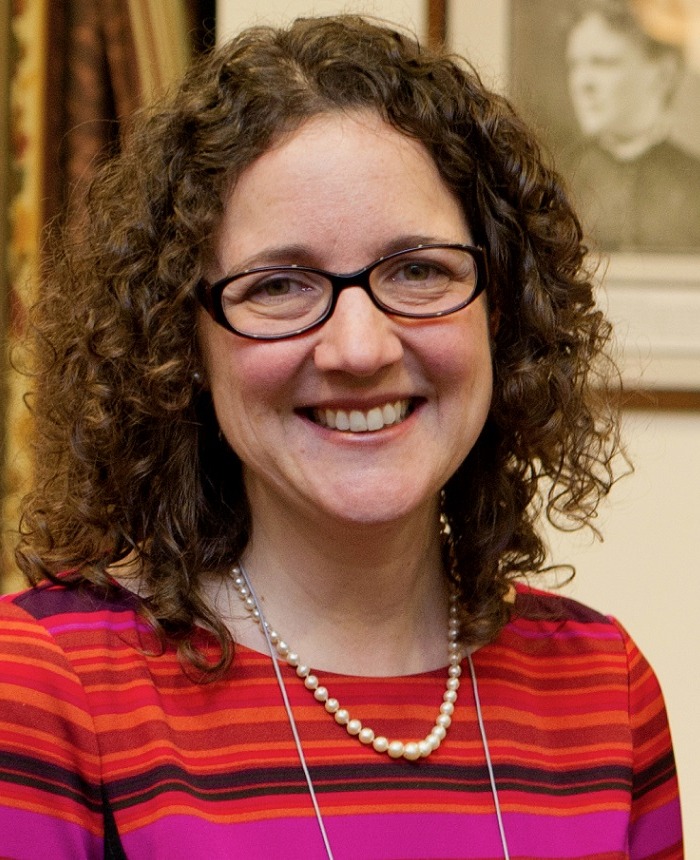![]() People ages 18 to 25 are over-represented at every stage of the criminal legal system and have the highest recidivism rate of any age group. It is obvious that we are responding badly to the developmental needs of these emerging adults — and “we” includes everything from schools and health care to law enforcement, judicial and correctional systems. If we want the United States to stop being the largest carceral state in the world, an excellent first step would be to reform policy and practice to better meet the needs of this distinct group.
People ages 18 to 25 are over-represented at every stage of the criminal legal system and have the highest recidivism rate of any age group. It is obvious that we are responding badly to the developmental needs of these emerging adults — and “we” includes everything from schools and health care to law enforcement, judicial and correctional systems. If we want the United States to stop being the largest carceral state in the world, an excellent first step would be to reform policy and practice to better meet the needs of this distinct group.

Lael E.H. Chester
A strong and growing body of science tells us that brain development continues into the mid-20s. In broad brush strokes, people in this age group are more likely to be impulsive and risk-taking but are also particularly malleable. And if given the opportunity to do so, most will mature out of lawbreaking as they transition fully into adulthood.
Our organization, the Emerging Adult Justice Project at the Columbia Justice Lab, recently created a developmental framework for the healthy maturing of emerging adults. Instead of treating older youth in almost exactly the same way as 40- or 50-year olds, the current approach used by our legal system, the framework seeks to guide jurisdictions on applying developmentally appropriate, effective and fair responses to this distinct age group. The work was supported by the Annie E. Casey Foundation and guided by practitioners, researchers, advocates and people with direct experience with the justice system. This foundational work distills research (in fields of neurobiology, developmental psychology and sociology, among others) to identify the principles that will promote success for this now poorly served age group.
To distill even further, the framework states that every practice and program needs to demonstrate what the framework calls a “CARES” orientation:
• Cohesive and connected with primary sources of healthy development (family, school, community).
• Accessible and affordable to all young people, regardless of financial means, access to transportation, other family obligations, disability or other potential barriers to access.
• Responsive and individualized, addressing both the universal developmental needs identified and young people’s individual strengths and histories.
• Equitable and affirming of young people’s racial/ethnic, cultural, gender and other shared identities, and free from experiences of discrimination or oppression.
• Safe and healing, ensuring that young people experience safety, can meet basic needs and have opportunities to improve their own health and well-being.
Those principles can be applied in myriad ways based on a community’s circumstances. That’s exactly what’s happening at three pilot sites that have been chosen to implement the framework, again with the Casey Foundation’s support.

Naoka Carey
The sites are diverse geographically and socially. At each one, a different legal system stakeholder will lead the project. Each team will enter the project with plans for scaling up the approaches that their teams develop.
In Massachusetts, the public defenders from the statewide Committee for Public Counsel Services will team lawyers working in the juvenile court with their colleagues working in adult court to create the Emerging Adult Pilot Office, serving young clients in Lowell and Lawrence, Massachusetts. They will use the framework to guide their defense of emerging adults and to work with social service and education professionals to advocate for plans that meet a clients’ individual needs and support them to successfully enter adulthood.
For example, they may investigate if an emerging adult client needs special education services. Legally, these services extend to age 22 but, when a youth is involved in the adult justice system, few even ask about any disabilities, let alone advocate for services. Or, if a client is aging out of foster care, they may connect the client with safe and stable housing.
The public defenders will collaborate closely with the staff and youth at UTEC, a Lowell-based nonprofit that has been supporting the wellness, development, and empowerment of emerging adults involved in the criminal legal system since 1999. Together, the youth, mentors and attorneys will work to develop practices and policies that provide support to the emerging adults during the court process, from helping young parents enroll in classes to ensuring they get access to age-appropriate substance abuse treatment. The plan is to expand this specialized emerging adult practice into a statewide model over the next three to five years, guiding criminal defense practices for all 18- to 25-year-olds in the state.
The Nebraska Administrative Office of the Courts and Probation will use the framework to reshape probation practices. The office will initially launch pilots in two communities — one rural and one urban — before implementing its approach statewide. It will focus on four areas: using an individualized probation model that recognizes each person’s unique needs and strengths; developing specialized emerging adult probation officers who receive additional training on such issues as trauma-informed care, diversity, equity and inclusion and neurological development; centering the voices of emerging adults in the development of practices and policies; and partnering with such community organizations as RISE Prison Re-Entry Program, Project Restore Minnesota and Multi-Health Systems that can provide services and opportunities that all young people need, including employment, education, housing and health care.
And in Washington, D.C., the Justice Policy Institute will use the framework to implement a strategic plan commissioned by the D.C. Council when it amended the district’s Youth Rehabilitation Act in 2018. This act is one of only a handful of laws in the country that extends the types of rehabilitative aspects and protections found in juvenile justice systems to 18-to 24-year-olds and specifically requires access to developmentally appropriate programming and support services. The three goals of the plan are to compel the government to work toward trauma-informed, healing-centered and restorative justice practices and policies; build a community-based continuum of care, including diversion programs, affordable housing, health services, workforce opportunities, educational programming and family involvement; and create a criminal legal system-based continuum of care, with specialized court programs, probation policies, physical facilities and reentry support for emerging adults.
The institute will hire a fellow who is (or was) involved with the criminal justice system as a young adult, develop an young adult advisory board, and regularly visit correctional facilities to solicit input from individuals who are incarcerated. The key partners in this work, Thrive Under 25 Coalition, Free Minds Book Club & Writing Workshop, and the DC Emerging Adult Justice Action Collaborative, will develop an implementation plan together, to ensure that adequate and appropriate resources are being invested in the community to support system-involved emerging adults become independent and healthy adults.
As we track these pilot projects’ outcomes, the sites will establish what we expect to be promising practices to better serve emerging adults. We will pay special attention to how young people of different races and ethnicities are affected by these innovations, as the greatest racial disparities in the system are seen among young adults. When we look at the two greatest evils in our justice system, overcriminalization and racism, it is abundantly clear that effective approaches must focus on this distinct age group, as it is disproportionately harmed by both.
It does not need to be this way. As anyone who, like us, works with young people can tell you, the late teens and early 20s can be periods of outstanding growth and achievement. Young people are given to activism, innovation and passion — all qualities that shine when they are given the right opportunities. We look forward to following what systems will be doing in Massachusetts, Nebraska and Washington, D.C. We believe that they will produce important knowledge about how the legal system can more fairly and effectively address emerging adults. That means more success for young people and more thriving communities for everyone.
***
Lael Elizabeth Hiam Chester is the director of the Emerging Adult Justice Project at the Columbia University Justice Lab. A graduate of Barnard College and Harvard Law School, she worked as the Albert Martin Sacks clinical fellow at the Criminal Justice Institute at Harvard, an assistant attorney general in the Civil Rights and Civil Liberties Division of the Massachusetts Attorney General’s Office, executive director of citizens for Juvenile Justice (CfJJ), a statewide nonprofit dedicated to improving the juvenile justice system, and a research fellow at Harvard Kennedy School’s Program in Criminal Justice Policy and Management.
Naoka Carey is a senior advisor for the Emerging Adult Justice Project at the Columbia Justice Lab and a doctoral candidate at the Lynch School of Education & Human Development, Boston College. Receiving her J.D. from New York University School of Law, MA Ed.M in Adolescent Risk and Prevention from the Harvard University Graduate School of Education, and A.B. from Harvard College, Naoka has been a law clerk at the Ninth Circuit U.S. Court of Appeals, staff attorney for the Children’s Law Center in DC, senior litigation associate at K&L Gates LLP in Boston, juvenile justice policy advocate at the Youth Advocacy Department of the Committee for Public Counsel Services, litigation specialist at the National Campaign for the Fair Sentencing of Youth and executive director at Citizens for Juvenile Justice.
***
The Annie E. Casey Foundation is a funder of the Center for Sustainable Journalism, the publisher of Youth Today and the Juvenile Justice Information Exchange. Read our editorial independence policy.
